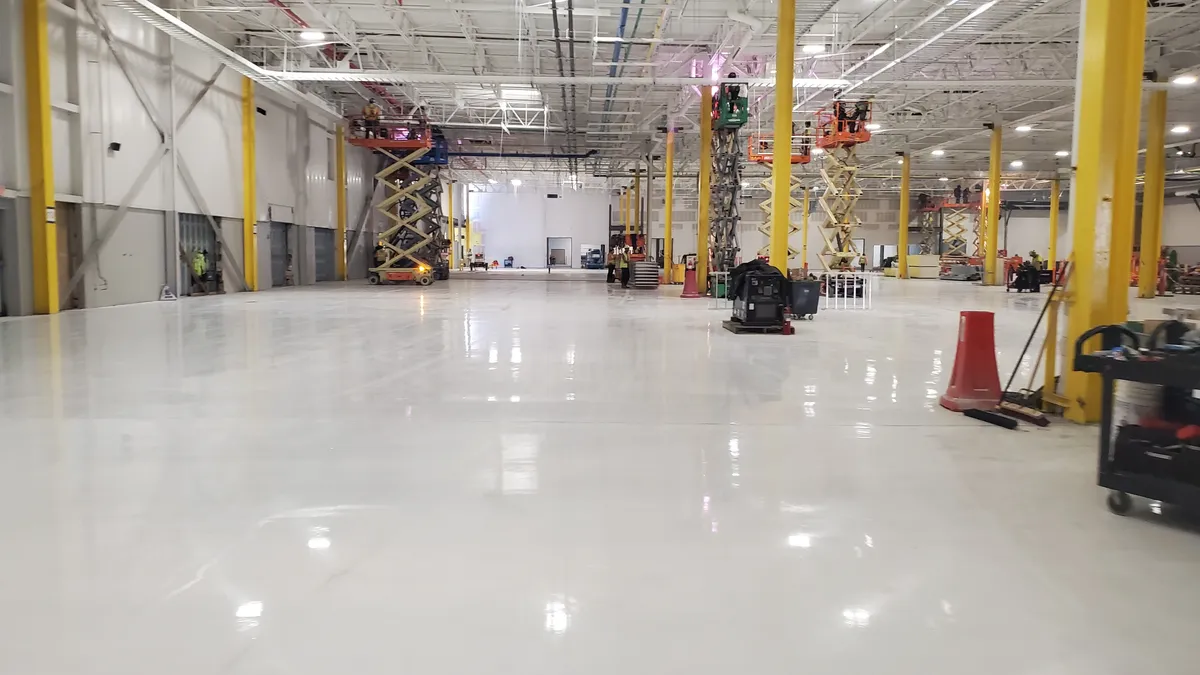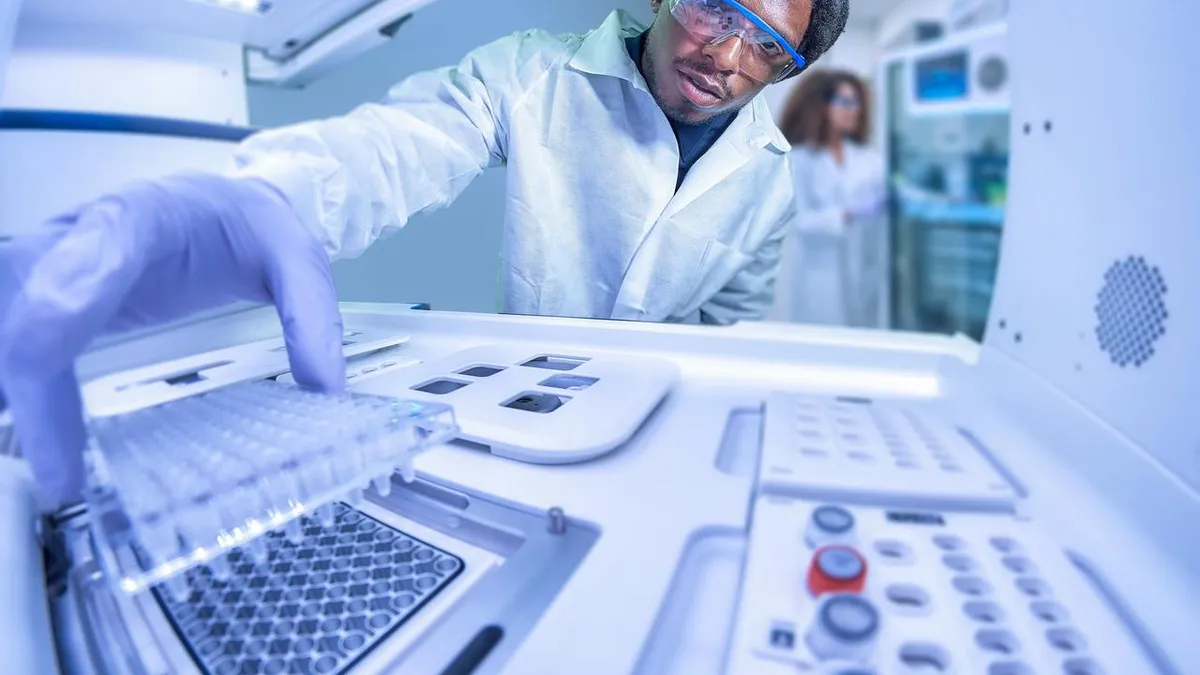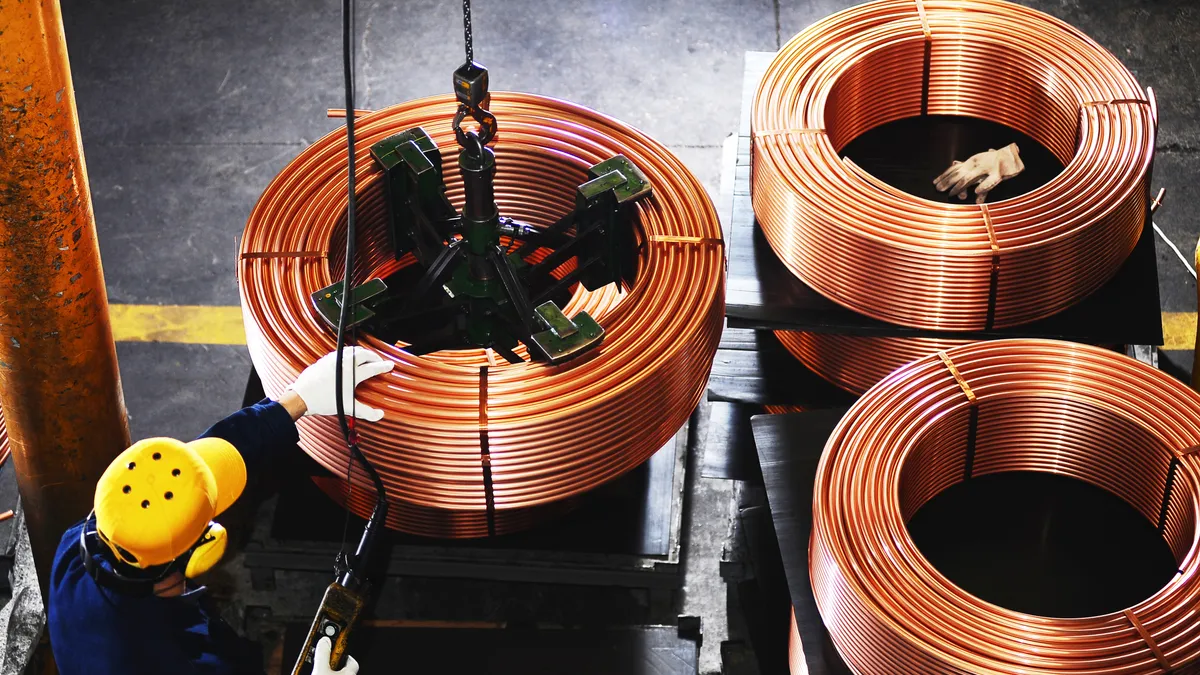The Department of Energy has canceled a $200 million grant awarded to Microvast after lawmakers questioned the lithium-ion battery maker’s ties to China’s government.
The Stafford, Texas-based company was one of 20 awarded funding through the first round of the Bipartisan Infrastructure Law. Microvast, in collaboration with General Motors, was set to use the grant to build a facility to expand production of separators, enabling faster charging and longer battery life in electric vehicles.
The facility was expected to supply battery components to its existing battery cell manufacturing plant in Clarksville, Tennessee, which is in its final construction phase, Microvast said earlier this month. The Department of Energy said in a statement to Manufacturing Dive that it cannot comment publicly on why it decided to cancel negotiations with any applicant.
In December, Republican Rep. Frank Lucas sent a letter to Energy Department Secretary Jennifer Granholm criticizing the funding decision, saying it raised “serious concerns about the Department’s ability to protect U.S. taxpayer dollars from exploitation by the CCP.”
Lucas, chairman of the House Science, Space, and Technology Committee, said in a statement Monday he was “pleased with DOE’s decision, but incredibly frustrated that it took the Department six months and multiple letters from our Committee to come to such an obvious conclusion.”
“These funds are intended to strengthen America’s battery production and supply chain, not to tighten China’s stranglehold on these supplies,” he said.
In March, Microvast announced it was investing $504 million toward its first battery separator plant in Hopkinsville, Kentucky, another collaboration with GM. The Energy Department grant was also meant to help fund the new campus, which was expected to begin construction this year and be completed by March 2025.
Despite the revocation of the loan, Microvast confirmed its commitment to continue to invest "significantly" in its U.S. expansion, founder and COE Yang Wu said in a statement Wednesday.
"The withdrawal of the DOE grant will have no impact on our expansion plans already underway for cell manufacturing,” Wu said. “We remain on track to increase the number of employees we have in the U.S., and we re-affirm our commitment to help the U.S. expand its battery supply chain and manufacturing initiatives."
The CEO noted however, that the change would have "some timing impact on bringing the separator technology to market, given this decision came as a surprise to us."
The company also affirmed its stance as independent from the Chinese Communist Party.
“Microvast is based in Texas, its shares are traded on Nasdaq, and the operations for our global business are centralized in the U.S.,” Wu said in the statement. “Neither the Chinese government nor the Chinese Communist Party has any ownership in the Company, nor do they control or influence Company operations in any way. The Company is therefore considering all of its options.
Editor's note: This story has been updated to include comments from Microvast regarding the Department of Energy decision.












